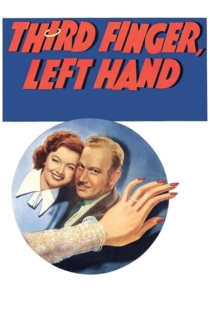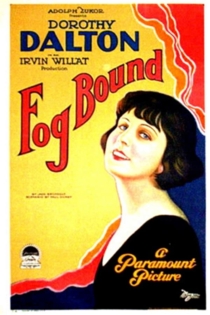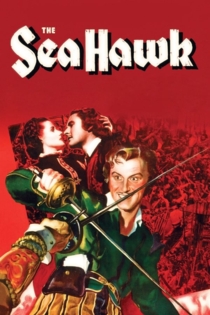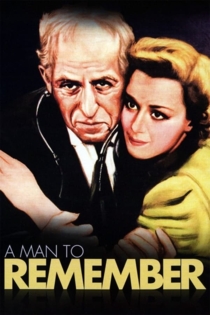
Maurice Costello
1877 - 1950Maurice George Costello (February 22, 1877 – October 29, 1950)[1] was an American prominent vaudeville actor of the late 1890s and early 1900s, who later played a principal role in early American films, as both a leading man, supporting player and a director.
Costello was born in Pittsburgh, Pennsylvania to Irish immigrants Ellen and Thomas Costello. He appeared in his first motion picture in 1905, in which he had the honour of appearing in the first serious film to feature the character of Sherlock Holmes in the movie Adventures of Sherlock Holmes, in which Costello played the title role. He continued to work for Vitagraph, being a member of the first motion picture stock company ever formed, playing opposite Florence Turner. Among some of his best known pictures are A Tale of Two Cities, The Man Who Couldn't Beat God and For the Honor of the Family. After an absence of some years he returned to the screen. He was married to actress Mae Costello (née Altschuk). His descendants include two daughters, actresses Dolores Costello and Helene Costello, a grandson John Drew Barrymore, and a great granddaughter Drew Barrymore. He was one of the world's first leading men in early American cinema, but like a lot of other silent screen stars, he found the transition to "talkies" extremely difficult, and his leading man status was over. However, Costello was a trouper, and continued to appear in movies, often in small roles and bit parts, right up until his death in 1950.
Rose Leaves
Charles Kent
Maurice Costello, Florence Turner
Mrs. String, sitting under the rose bushes with her baby, Helen, on her knee, is approached lovingly by her husband, who lovingly speaks to his family and then shakes the rose bushes over their heads, causing the white leaves to fall upon their heads in a shower of rarest sun tints.
Rose Leaves
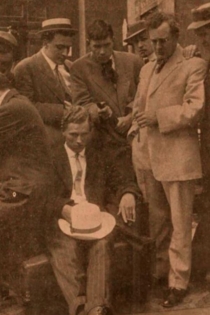
Auld Lang Syne
Laurence Trimble
Maurice Costello, Florence Turner
Among the green hills of Scotland dwelt two farmer lads, Tammas and Geordie, fast friends tried and loyal as members of the same clan. They are both very much in love with Jenny, a little Scottish lass, and Geordie dreams of what might be if he were successful in his wooing.
Auld Lang Syne
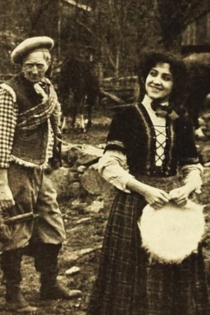
Citizen Kane
Orson Welles
Orson Welles, Joseph Cotten
Newspaper magnate, Charles Foster Kane is taken from his mother as a boy and made the ward of a rich industrialist. As a result, every well-meaning, tyrannical or self-destructive move he makes for the rest of his life appears in some way to be a reaction to that deeply wounding event.
Citizen Kane
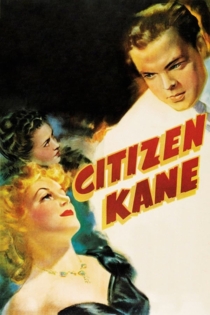
Mr. Smith Goes to Washington
Frank Capra
James Stewart, Jean Arthur
Naive and idealistic Jefferson Smith, leader of the Boy Rangers, is appointed to the United States Senate by the puppet governor of his state. He soon discovers, upon going to Washington, many shortcomings of the political process as his earnest goal of a national boys' camp leads to a conflict with the state political boss.
Mr. Smith Goes to Washington
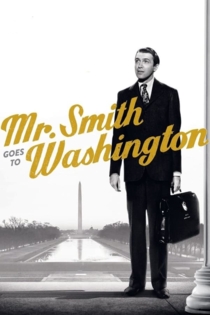
The Roaring Twenties
Raoul Walsh
James Cagney, Priscilla Lane
After World War I, Armistice Lloyd Hart goes back to practice law, former saloon keeper George Hally turns to bootlegging, and out-of-work Eddie Bartlett becomes a cab driver. Eddie builds a fleet of cabs through delivery of bootleg liquor and hires Lloyd as his lawyer. George becomes Eddie's partner and the rackets flourish until love and rivalry interfere.
The Roaring Twenties
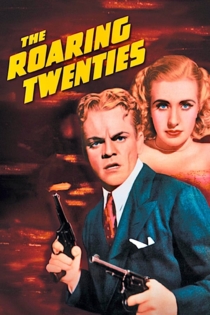
Here Comes Mr. Jordan
Alexander Hall
Robert Montgomery, Evelyn Keyes
Boxer Joe Pendleton, flying to his next fight, crashes...because a Heavenly Messenger, new on the job, snatched Joe's spirit prematurely from his body. Before the matter can be rectified, Joe's body is cremated; so the celestial Mr. Jordan grants him the use of the body of wealthy Bruce Farnsworth, who's just been murdered by his wife. Joe tries to remake Farnsworth's unworthy life in his own clean-cut image, but then falls in love; and what about that murderous wife?
Here Comes Mr. Jordan
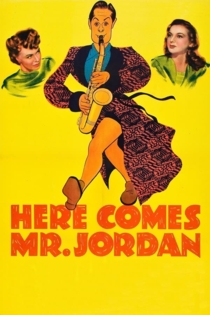
All This, and Heaven Too
Anatole Litvak
Bette Davis, Charles Boyer
When lovely and virtuous governess Henriette Deluzy comes to educate the children of the debonair Duc de Praslin, a royal subject to King Louis-Philippe and the husband of the volatile and obsessive Duchesse de Praslin, she instantly incurs the wrath of her mistress, who is insanely jealous of anyone who comes near her estranged husband. Though she saves the duchess's little son from a near-death illness and warms herself to all the children, she is nevertheless dismissed by the vengeful duchess. Meanwhile, the attraction between the duke and Henriette continues to grow, eventually leading to tragedy.
All This, and Heaven Too
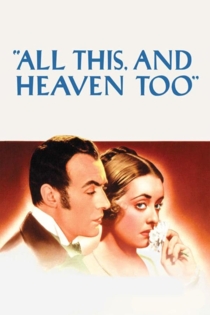
Foreign Correspondent
Alfred Hitchcock
Joel McCrea, Laraine Day
The European war was only beginning to erupt across national borders. Johnny Jones, an American crime reporter dispatched by his New York publisher to put a fresh spin on the drowsy dispatches emanating from overseas, has a nose for a good story—which promptly leads him to the crime of fascism and Nazi Germany's designs on European conquest. In attempting to learn more about a seemingly noble peace effort, Jones walks into the middle of an assassination, uncovers a spy ring and—not entirely coincidentally—falls in love.
Foreign Correspondent
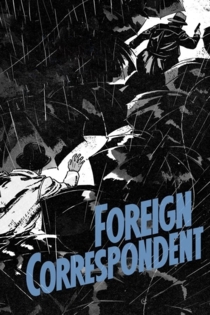
Little Nemo
J. Stuart Blackton, Winsor McCay
Winsor McCay, John Bunny
Cartoon figures announce, via comic strip balloons, that they will move - and move they do, in a wildly exaggerated style. Also known as "Winsor McCay, the Famous Cartoonist of the N.Y. Herald and His Moving Comics".
Little Nemo
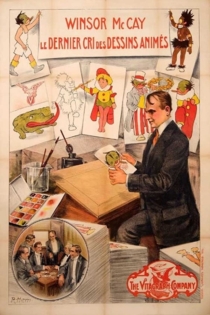
Edison, the Man
Clarence Brown
Spencer Tracy, Charles Coburn
In flashback, fifty years after inventing the light bulb, an 82-year-old Edison tells his story starting at age twenty-two with his arrival in New York. He's on his way with the invention of an early form of the stock market ticker.
Edison, the Man
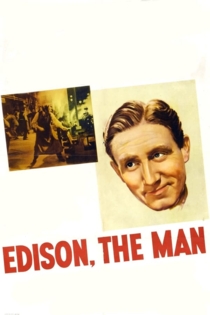
Johnny Apollo
Henry Hathaway
Tyrone Power, Dorothy Lamour
Wall Street broker Robert Cain, Sr., is jailed for embezzling. His college graduate son Bob then turns to crime to raise money for his father's release. As assistant to mobster Mickey Dwyer, then falls for Dwyer's girl Lucky. He winds up in the same prison as his father.
Johnny Apollo
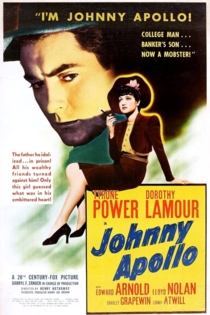
Third Finger, Left Hand
Robert Z. Leonard
Myrna Loy, Melvyn Douglas
Magazine editor Margot Merrick pretends to be married in order to avoid advances from male colleagues. Unfortunately, things don't go to plan when Jeff Thompson, a potential suitor, uncovers the deception and decides to show up at Margot's family home posing as her husband!
Third Finger, Left Hand
